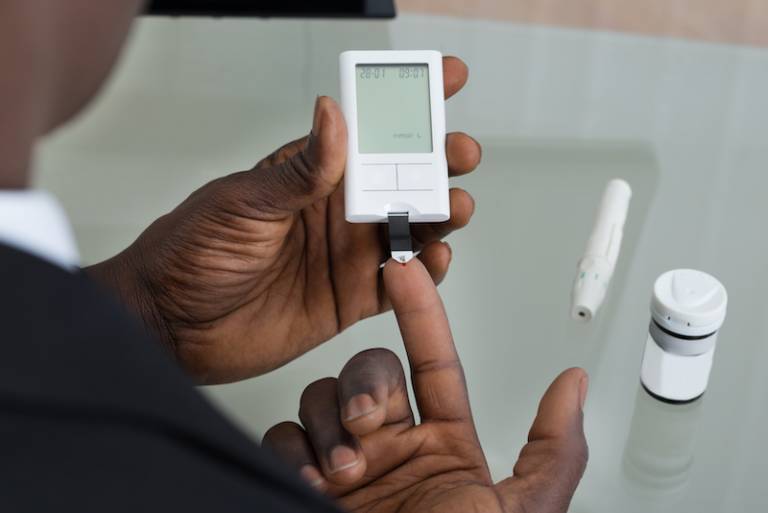mHealth intervention and community mobilisation help Bangladesh battle diabetes
Health information is being disseminated through mobile technology and cutting diabetes risk.

24 June 2019
Bangladesh has one of the highest growth rates of diabetes in the world, with approximately seven million cases in 2017. Rural communities are particularly vulnerable due to limited access to diagnostic tools or health information.
UCL researchers are targeting the problem by combining community outreach projects with the use of mobile phone technology to spread health information designed to prevent or manage the disease. The D-Magic project published results in the Lancet Diabetes and Endocrinology earlier this year, showing how community groups can cut diabetes risk by almost two-thirds.
“By the end of the project villagers had a much better understanding of how to prevent and control diabetes, many had started exercise clubs and even lobbied local markers to sell healthier foods” said project lead and principal investigator, Dr Ed Fottrell.
The team of researchers from UCL Institute for Global Health and the Diabetic Association of Bangladesh was led by Dr Edward Fottrell (Director, UCL Centre of Non-Communicable Diseases). The Bangladesh D-Magic trial was fully funded by the Medical Research Council under the Global Alliance for Chronic Diseases (GACD).
Related links:
 Close
Close

